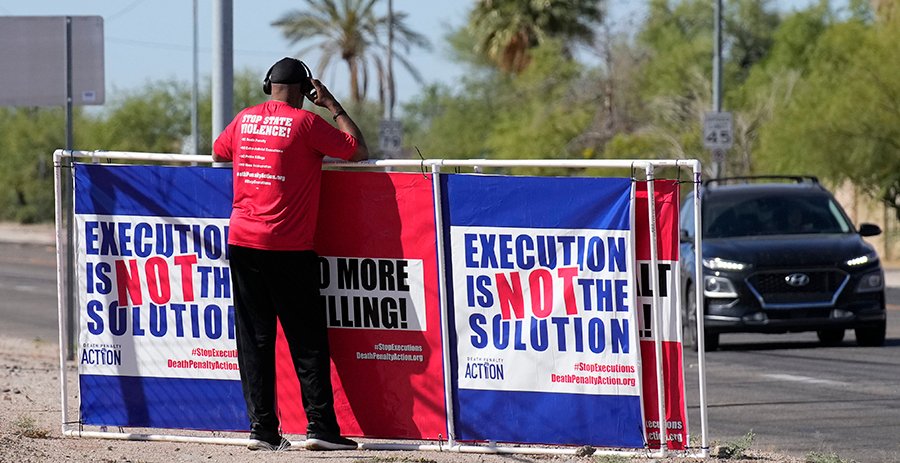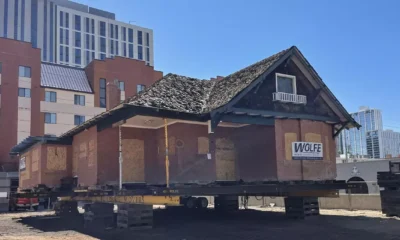Aaron Gunches
Arizona Approaches Historic Execution as 2-Year Wait Nears Its End

Arizona Attorney General Kris Mayes has initiated steps to move forward with the execution of convicted murderer Aaron Gunches. On Friday, Mayes requested the Arizona Supreme Court to establish a formal briefing schedule addressing the necessary legal questions before the execution can take place.
While Mayes has not yet applied for an execution warrant, she noted that such a request would come after any legal disputes are resolved. An execution must occur within 35 days of issuing a warrant, and any unresolved legal matters would lead to the expiration of the warrant.
Gunches, sentenced to death for the 2002 murder of Ted Price, was initially slated for execution on April 6, 2023. However, Governor Katie Hobbs delayed the process in January to allow for a review of the state’s execution protocols following several troubled executions, which ultimately resulted in the expiration of the warrant.
In a recent development, Governor Hobbs has decided to resume the execution process after terminating retired Magistrate David Duncan, who was conducting the review. Hobbs expressed a loss of confidence in Duncan’s direction, indicating that his draft report strayed from the limited scope of his assignment.
In her filings, Mayes also explained that the pentobarbital intended for Gunches’ execution must be compounded and used within a 90-day timeframe. Mayes confirmed her readiness to restart the execution process, asserting her commitment to upholding state law and providing justice for the victim’s family, which has been waiting for over two decades.
The timeline for Gunches’ execution remains uncertain. Mayes informed the justices that Gunches has 10 days to respond to the request for the warrant, with the state given an additional five days to reply. Following this, the court could review the request and potentially set an execution date.
However, Mayes cautioned against expecting swift action. She acknowledged that capital cases often entail extended filing periods, which can prolong pre-warrant procedures. Previous cases, such as that of Robert Jones in 2013, exemplify this drawn-out process.
Whether Gunches will contest the warrant remains unclear, as he previously pleaded guilty to murder and kidnapping. Although he sought an execution warrant himself in November 2022, he withdrew that request in January 2023, coinciding with the governor’s suspension of all executions.
If carried out, Gunches’ execution would mark Arizona’s first since 2021, with 111 inmates currently on death row. Out of these, 25 inmates, including Gunches, have exhausted their appeals.
The state’s execution protocols came under scrutiny following a botched procedure in 2014, which saw Joseph Wood receive an excessive amount of lethal drugs. This raised significant concerns that prompted Governor Hobbs to look into the execution process more thoroughly.
Despite the governor’s hesitance to proceed, the Attorney General maintains that the authority to request an execution warrant lies solely with her, as the governor cannot unilaterally decide on such matters without a recommendation from the Board of Executive Clemency.
Mayes’ request coincides with an ongoing consideration by the Supreme Court regarding a parallel motion by Maricopa County Attorney Rachel Mitchell, who seeks a death warrant for Gunches. Mitchell opposed the previous execution delays instituted by Hobbs and Mayes and claims the right to pursue a death warrant as well.
The court has yet to rule on this matter, and it remains to be seen how both parties will proceed moving forward.


















